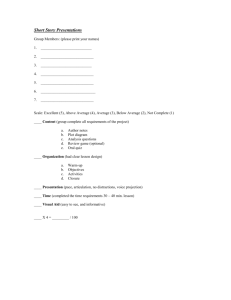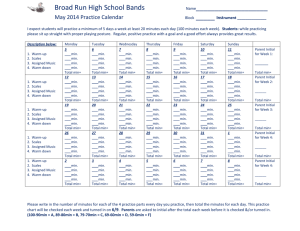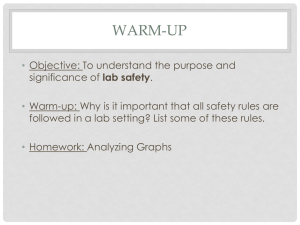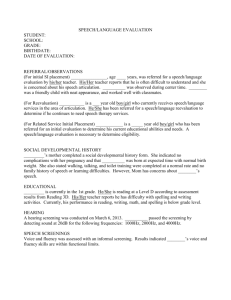Basic Drama ProjectsChp1
advertisement
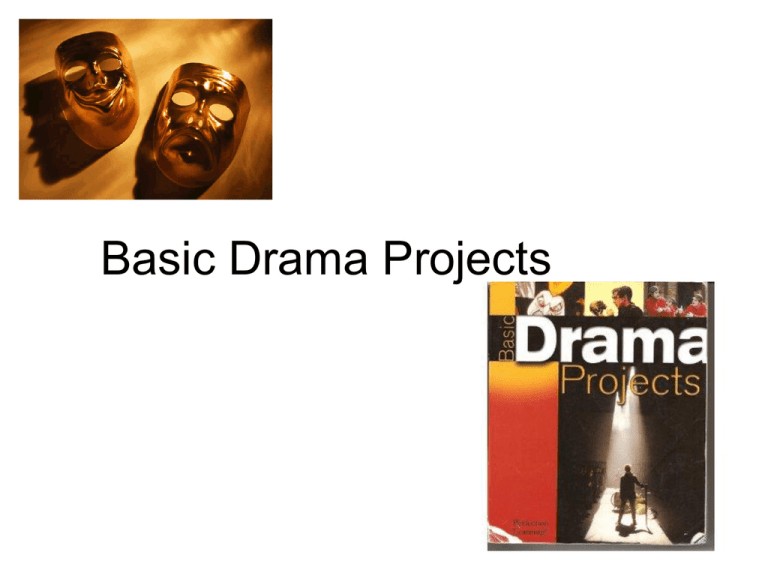
Basic Drama Projects Welcome to Drama Class! • Character development • Improv • Creating props • Planning set designs • Writing • Directing People Skills • • • • • • • Tap creativity Gain self-confidence Work collaboratively Be part of a team! Develop dependability Critical listener Critical viewer Journal Entry “On the stage you’re exploring the limits of yourself. How loud and how strong and how big and how wide is the human entity? How much are we like giants and kings?” Ruby Dee, Actor (A Raisin in the Sun) Begin with the Basics Chapter 1 Warm Up • • • • • • Experiential learning Theater terminology Warm-up Observation Pantomime Improvisation Warm-up • • • • Relax body and mind Increase flexibility Improve articulation Develop warm up routine Warm-up • Alert • Responsive • Redirect nervous energy • Prepare voice and body • Articulation – clear pronunciation of words • Intonation – Rise and fall of sounds and rhythm of a particular language • Idiolect – Speech mannerisms • Dialect – Regional variations in speech • Accent – Coloring of a second language by the first learning of a native language Twister Wizard • Use clear articulation, expressive intonation and appropriate gestures. • “Perform” the tongue twister • Avoid “sing-song” monotone. Gestures Project: Explain the message • Total physical response • Discussion: Describe a time when someone’s body language tipped you off to what they were thinking. Professional Actors • Effortless performance • Inhabit characters • Tools – Mind – Voice – Emotions Actor Preparation • • • • • Vocalizing Routine Pliable Adaptable Disciplined Class Participation/Writing Project • Students will imitate the poses in the picture. One student will act as a director. Journal: As you pose for the picture, be aware! What to you observe with all five of your senses? Describe the experience of posing for the picture. What thoughts went through your mind? Address each of the five senses—sight, sound, smell, taste, touch. Then, choose one of the characters in the photograph and write a short biography of the character. Then compare your biography to those of your classmates. Why warm up? • Athletes • Musicians • Singers Avoid injuries. Condition muscles. Decrease awkwardness. Warm-ups • Yoga • Martial arts • Dance Differentiate: • Relaxation techniques • Warm-up exercises Why warm up? • • • • Relax Clear mind Use body and voice effectively Convert nervous energy to inhabiting the character • Build confidence • Expand range of communication and movement • Gain mastery of body’s expressive ability Warm Up Routine: Project • • • • Name the movements Weave story around the movements Move to music Conscious breathing exercises
